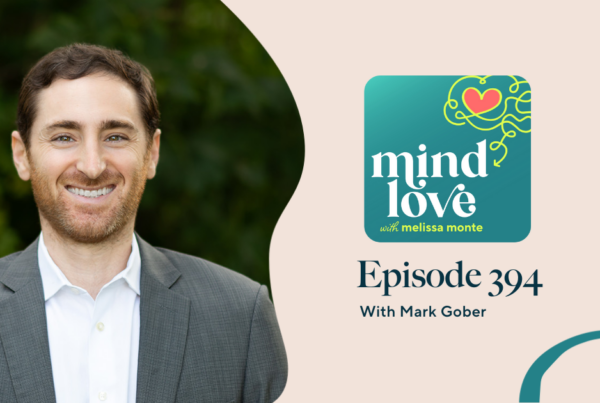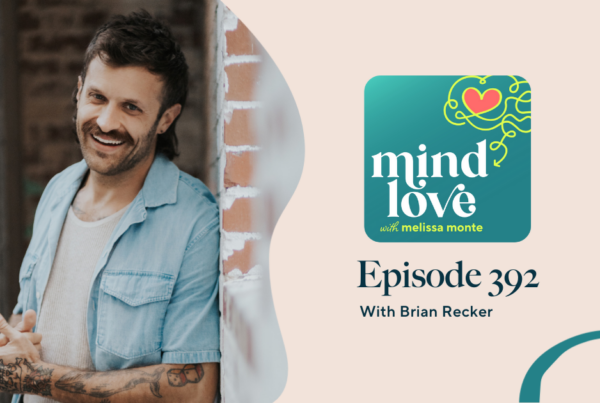
Emotions are like the weather—sometimes sunny, sometimes stormy, but always a part of our daily lives. The trick isn’t to avoid them but to handle them in a way that serves us. Because let’s face it, navigating emotions poorly can turn a drizzle into a downpour, affecting not just our mood but our overall life quality.
And for my HSPs and Empaths out there, this guide has a special resonance for you. You’re the folks who feel life deeply, picking up on nuances that others might overlook. While that’s a superpower in its own right, it can sometimes feel like a burden. Don’t worry; we’ve got a section tailored just for you to help you manage that beautiful sensitivity of yours.
In this guide, we’re diving deep into the art of emotional well-being. We’ll explore the do’s and don’ts, sprinkle in some wisdom from the RAIN practice by Tara Brach, and even take a spiritual detour into Buddhism. Ready to become an emotional ninja? Let’s get started.
Understanding Emotions
What Are Emotions, Anyway?
Think of emotions as your internal GPS. They’re not just random bursts of “Yay!” or “Nay!” but complex reactions that help you navigate the maze of life. You’ve got your basic feels like joy, anger, and surprise, and then the more complex ones that are like emotional cocktails—mixing a bit of this and a bit of that.
Why Emotional Well-being is Your New BFF
Let’s get real. Your emotional health is like the Wi-Fi signal to your life. When it’s strong, everything’s smooth sailing. But when it’s weak? Buffering… Buffering… Buffering… So, let’s boost that signal and make sure you’re living your best life, emotionally speaking.
Harmful Ways of Managing Emotions (The No-No List  )
)
Denial
Denial isn’t just a river in Egypt, folks. Denying emotions can lead to emotional suppression, which may result in the accumulation of unresolved feelings. Eventually, these bottled-up emotions can explode or manifest in destructive behaviors. In other words, ignoring your emotions is like stuffing your dirty laundry under the bed. Sure, it’s out of sight, but eventually, it’s going to stink up the room.
Withdrawal
Ever feel like becoming a hermit and avoiding humanity? Withdrawal involves isolating oneself from others and avoiding social interactions. While it is natural to seek solitude from time to time, persistent withdrawal can be a sign of depression or other emotional struggles. Isolation can intensify negative emotions, perpetuate distorted thinking, and hinder the development of healthy coping strategies.
So basically, while a Netflix binge sounds tempting, too much isolation can turn you into an emotional zombie. And nobody wants that.
Bullying
Bullying is a harmful way of managing emotions that involves exerting power over others through force, threats, or ridicule. Bullies often engage in such behavior to alleviate their own feelings of inadequacy or loneliness. However, bullying not only harms the victim but also fails to address the underlying emotional issues of the bully.
Bullying is the emotional equivalent of junk food. It might give you a quick high, but it’s terrible for you (and everyone around you) in the long run.
Self-harm
Self-harm is a dangerous coping mechanism that individuals may resort to in an attempt to gain control over emotional pain. This behavior can take various forms, such as cutting, binging and purging (my old coping mechanism of choice… well, until I stopped having the ability to choose anymore), or participating in risky activities. While self-harm may provide temporary relief, it can quickly escalate into addictive behaviors and exacerbate emotional distress.
This one’s serious, love. Hurting yourself might seem like a way to control emotional chaos, but it’s a dangerous detour. If you’re struggling, reach out. You’re not alone.
Substance Use
Using substances, such as alcohol or drugs, to numb emotional pain is a harmful way of managing emotions. While substances may provide temporary relief, they can lead to dependence, addiction, and a worsening of emotional well-being. Substance use often masks underlying issues and prevents individuals from developing healthy coping mechanisms.
Ah, the ol’ liquid courage or puff of escapism. Temporary? Yes. Helpful? Nope. It’s like putting a Band-Aid on a bullet wound.
Healthy Ways to Manage Emotions (The Yaaas List  )
)
The RAIN practice, developed by Tara Brach, offers a powerful framework for cultivating mindfulness and compassion in the face of challenging emotions. RAIN stands for Recognize, Allow, Investigate, and Nurture. Let’s explore each step in detail:
Recognize
The first step of RAIN is to recognize the presence of difficult emotions. Take a moment to acknowledge the specific emotions you are experiencing without judgment or resistance. By simply recognizing your emotions, you create space for self-awareness and understanding.
Give your emotions the VIP treatment. Roll out the red carpet and say, “I see you, Anger. What’s up, Joy?”
Allow
After recognizing your emotions, allow them to be present without trying to push them away or change them. Embrace a stance of radical acceptance, acknowledging that emotions are a natural part of the human experience. By allowing your emotions to exist without resistance, you can cultivate a sense of inner peace.
Let your emotions flow like a river, not a dam. No judgment here. Emotions are like weather patterns; they come and go.
Investigate
Once you have allowed your emotions, engage in a process of investigation. Explore the thoughts, beliefs, and bodily sensations associated with your emotions. Notice any patterns or triggers that contribute to the intensity of your emotions. This step allows for a deeper understanding of your emotional landscape.
Put on your detective hat 
Nurture
The final step of RAIN is to nurture yourself with self-compassion and kindness. Offer yourself the same care and support that you would provide to a dear friend in distress. Recognize that you are not your emotions; they are passing experiences. By nurturing yourself, you can soothe emotional wounds and promote healing.
Wrap yourself in a warm, fluffy emotional blanket. You deserve all the love and care, especially when the emotional seas get rough.
Buddhism and Emotional Well-being (The OG Emotional Toolkit  )
)
Buddhism is like the OG emotional guru. From embracing the ever-changing nature of emotions to practicing mindfulness, it’s got some ancient wisdom that’s still totally on point.
Impermanence
Ever notice how your mood can swing faster than a pendulum? Well, Buddhism has a word for that: Impermanence. It’s the cosmic reminder that everything, including that mood of yours, is ever-changing. So, the next time you’re stuck in a funk, remember it’s just a passing cloud, not the whole sky.
Non-attachment
Imagine holding onto your emotions like you’re clutching a hot coal. Ouch, right? Buddhism teaches us the art of non-attachment, which is basically like saying, “Hey, Emotion, I see you, but you’re not the boss of me.” It’s like emotional social distancing—close enough to understand, far enough to stay safe.
Mindfulness
Mindfulness is like the VIP lounge of emotional well-being, and Buddhism is handing you the golden ticket. It’s all about being here, right now, fully tuned into the present moment. No judgments, no reruns of past mistakes, or previews of future worries. Just you and the now, hanging out and getting to know each other.
Loving-kindness
Ready for a heart-warmer? Buddhism teaches us the practice of Loving-kindness, or Metta if you want to get fancy. It’s like sending a love letter to your soul and to everyone else’s. By showering ourselves with some good ol’ Metta, we’re not just tolerating our emotions; we’re rolling out the welcome mat and offering them a cup of tea.
Additional Healthy Ways to Manage Emotions (Because Variety is the Spice of Life  )
)
In addition to the RAIN practice and principles from Buddhism, there are numerous other healthy strategies for managing emotions. Let’s explore some of them:
Expressive Writing
Ever feel like your emotions are a tangled ball of yarn? Time to unravel it with the power of expressive writing! Think of your journal as your emotional BFF—always there, never judgmental. So, grab a pen and let your soul spill onto the paper. It’s like emotional decluttering, Marie Kondo style!
Physical Exercise
Let’s get physical, physical! 
Seeking Support
You know the saying, “It takes a village”? Well, it takes a tribe to navigate the emotional jungle too. Don’t be a lone wolf; reach out to your pack. Whether it’s a heart-to-heart with a friend or a sit-down with a pro, sharing is caring—especially when it comes to your emotional well-being.
Mindful Breathing
Inhale love, exhale stress. Sounds simple, right? But mindful breathing is like a mini-vacation for your mind. Take a few moments each day to breathe like you’re smelling a bouquet of roses and blowing out birthday candles. It’s a small act with a big emotional payoff.
A Special Note for HSPs and Empaths (Your Superpower, Not Your Kryptonite  )
)
Hey, you sensitive souls and emotional sponges, this one’s for you! Being an HSP or an Empath is like having a super-sensitive emotional antenna. You pick up on vibes and energies that others might miss, and that’s a beautiful thing. But it can also feel overwhelming, right? Like you’re carrying the emotional weight of the world on your shoulders. So, let’s talk about how to manage that gift without letting it manage you.
Boundaries are Your BFFs
First things first, boundaries aren’t walls; they’re filters. Imagine going through life with a sieve that lets in the good and keeps out the draining. Learn to say no, protect your energy, and remember, it’s okay not to be everyone’s emotional lifeboat.
Emotional Grounding
When you’re sensitive to the energies around you, grounding becomes essential. Think of it as your emotional anchor. Whether it’s a walk in nature, some grounding yoga poses, or even hugging a tree—find what roots you and make it a regular practice.
The Pause Button
Before absorbing an emotion, hit the pause button. Ask yourself, “Is this mine?” Sometimes, you might be picking up someone else’s emotional static. Recognizing that can be liberating and can help you detach from emotions that aren’t serving you.
Self-Compassion
Last but not least, shower yourself with the same compassion you offer others. Being sensitive doesn’t mean you’re weak; it means you’re human, with a dash of extra empathy. So, treat yourself with kindness, especially when navigating emotional landscapes.
Conclusion
Managing emotions in a healthy and constructive way is essential for our overall well-being. By understanding the difference between healthy and harmful coping strategies, adopting the RAIN practice, and incorporating principles from Buddhism, we can cultivate emotional resilience and navigate life’s challenges with greater ease. Remember to be patient and kind to yourself as you embark on this journey of emotional well-being. With practice and self-compassion, you can develop the tools necessary to lead a more fulfilling and balanced



